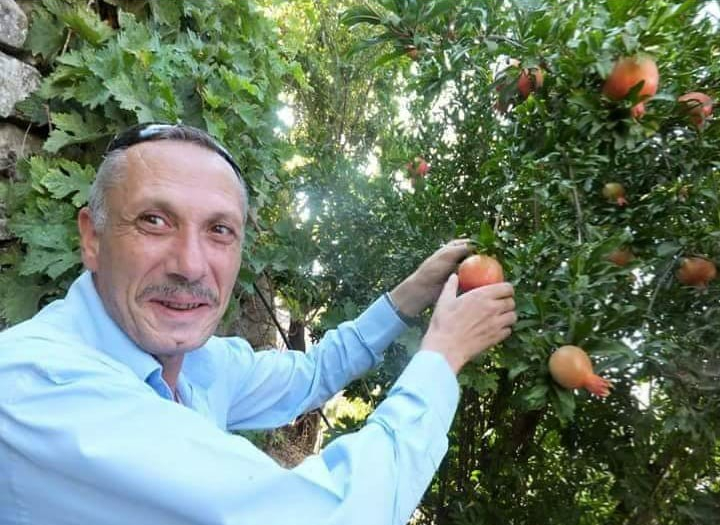By Tom Anderson
Last week a day of action was held in solidarity with Palestinian prisoners held in Israeli jails. This interview is part of a series of Corporate Occupation articles investigating the Israeli prison system.
Suleiman Majid* is a member of the Hamas party in his early forties. Corporate Occupation met with him, and with Talib Hasan* who was imprisoned during the same period, in a town in the Northern West Bank to discuss their imprisonment by the Israel state. We discussed the involvement of international companies in providing services to Israeli prisons, particularly G4S.
Suleiman was imprisoned in Megiddo prison, which G4S is known to provide services to.
Suleiman was held in administrative detention, i.e. detention without charge, because of his membership of Hamas. Israel imprisons Palestinians for membership of a broad range of political organisations, student bodies and civil society organisations, including all Palestinian political parties.
A list of military orders proscribing Palestinian organisations can be found here.
Administrative detention, and measures like it, have been in place since the British mandate in Palestine. Palestinian prisoners’ rights group Addameer states that, “between 2007 and 2011, 8,157 administrative detention orders were issued by Israel. As of February 2013, there were 178 Palestinian administrative detainees in Israeli custody.”
Both men had also been arrested in the West Bank and transferred to 1948 Israel. The transfer of Palestinian prisoners from Gaza and the West Bank inside the 1948 borders of Israel is in breach of the Geneva Conventions (for more information on this, see here).
Tom Anderson: How many times have you been imprisoned?
Suleiman Majid: I have been arrested five times. The first time was in 1993, when I was 21 years old. I got seven months. Then I was imprisoned from 1994-98, 1998-2005, 2007-2009 and 2012-13. On each occasion, the main reason I was arrested was because I was a member of the Hamas party.
TA: Can you tell me about the last time you were arrested?
SM: My last arrest was on 9 February 2012. I was arrested at my house at 1.30 am. They knocked on the door, I went out and I was arrested. So they can’t have been very scared of me seeing as they just knocked on the door. They tied my hands and my eyes. I think they were the army. They took me to the area close to Hamra checkpoint and detained me there. On the second day they took me to Meggido prison [inside the 1948 borders of Israel].
Then they took me to court in Salem [inside the 1948 borders of Israel]. Nothing happened there in terms of a court case. They just gave me six months Administrative Detention. I saw the front of my file; it said that I “endanger the Israeli state”.
Two days before the end of my sentence, I received a letter saying my detention would be extended for a further six months. I had another hearing in Ofer [military court in the West Bank, near Ramallah]. My lawyer asked for my file to be sent to a higher court. In the end the court made a deal that, if my lawyer agreed not to do this, it would only be another six months of administrative detention.
I spent the first six months of my imprisonment in Megiddo and the second six in Shatta prison, near Bisan [also inside 1948 Israel].
TA: Were your family able to visit you or talk to you?
SM: I was not allowed to speak on the phone. My mum was able to visit twice a month. My dad was only able to visit me twice. The family needs permission to visit and the prison asks for papers to show that they are close relatives. The trip to visit me took a long time, 12 hours, from 5am to 5pm. Women have more difficulties when visiting than men. They must take off some of their clothes and their headscarves. Sometimes people arrive at the prison to visit their relatives and the guards say the prisoners have been moved. The only way to visit is with the Red Cross, but the Red Cross works with the Israelis and accepts whatever they decide.
TA: Do you want to say anything else about the conditions for Palestinian prisoners in Israeli jails?
SM: The Israelis try to make as much money out of the prisoners as possible. The food in the prisons is provided by an organisation called Dadash. 17% of its profits are given to the prison management. The price [of food] in 1948 [Israel] is higher than in the West Bank, and the price in the prisons is higher than in ’48. Most people don’t eat much of the food in the canteen as it is not traditional Palestinian food. And even if we did eat the prison food, it wasn’t enough. I received $300 for food from my family. I had a single gas ring in my room, which I used for coffee and tea. I used to buy tuna, rice and olive oil. The prison doesn’t even provide basics like toothbrushes. The prisoners have to buy them. The prison hospital bills are charged to the families of the prisoners. Many of the prisoners in prisons in ’48 Israel have Israeli nationality but the Palestinian Authority still has to pay for their needs. If chairs or furniture are broken inside the prisons, the cost is charged to the PA.
Talib Hasan: The guards used the prison loudspeakers all night to stop people sleeping, especially during Muslim prayer times.
TA: Do you have a message for international activists campaigning against G4S?
SM: G4S must know that they are supporting apartheid and occupation. By supporting the economy of the occupation, they are enabling the occupation to build more prisons and imprison more people. I would also ask international activists to work against the administrative detention law.
TH: Please tell the company to come and see the prisons with their eyes to see exactly what they are supporting.
—————
* The interviewee’s name has been changed at their request.



1 Comment
G4S’ hidden business in Israel’s prisons | Corporate Watch · 25th July 2013 at 1:33 pm
[…] of the interviews we carried out, a former prisoner speaking under the name Talib Hasan asked us to “Please tell the company [G4S] to come and see the prisons with their eyes to see exactly what… When G4S first came under scrutiny for its activities in the West Bank, the company sent Professor […]